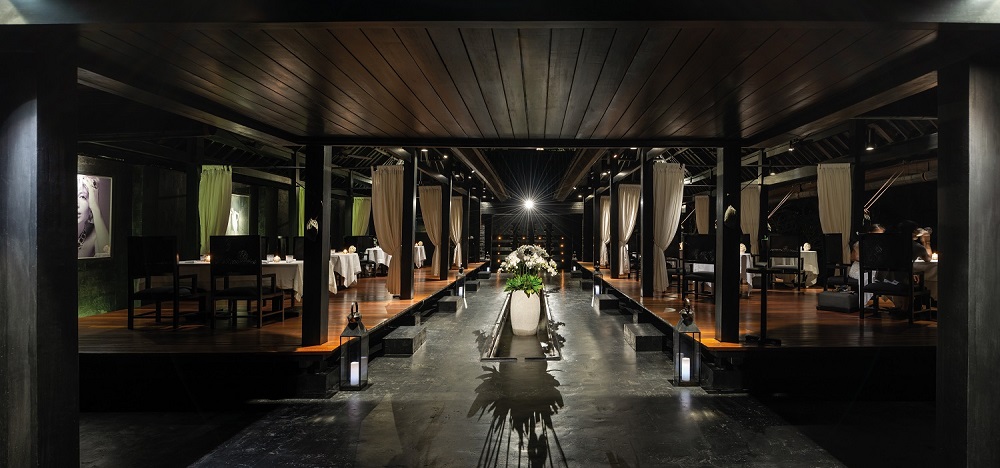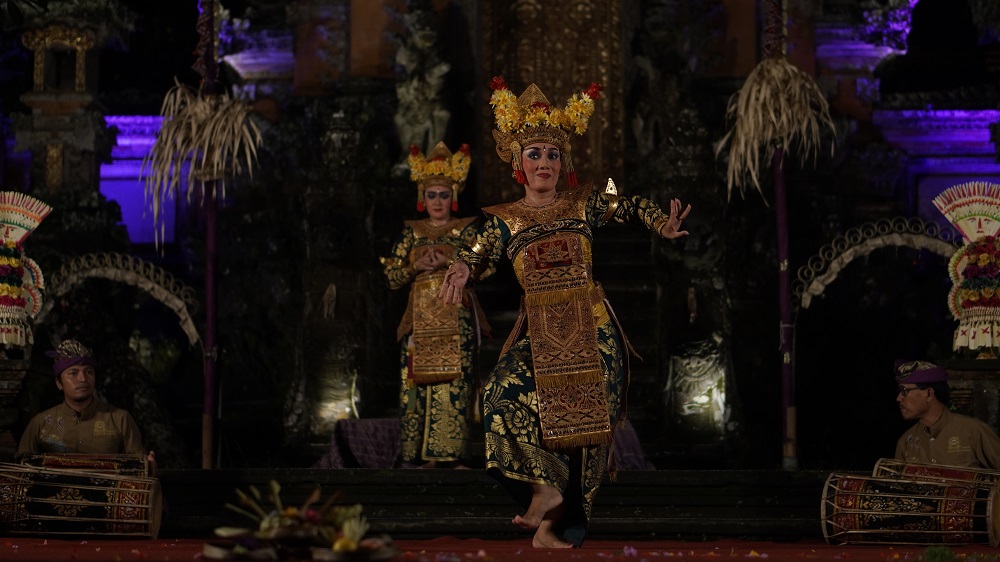The commercialisation of Eastern spirituality began in the USA. “In America is the place, the people, the opportunity for everything new,” wrote Swami Vivekananda before he left India in 1893. Vivekananda had learned from his guru, Sri Ramakrishna, that the world’s religions “are but various phases of one eternal religion”, and the spiritual essence could be transmitted from one person to another. He set about to bring that transmission to America.” So wrote Holly Hammond in 2007 in the Yoga Journal article: ‘The Timeline and History of Yoga in America’.
The article notes that other Indian sages soon went to the US, the first yoga studio opened in California in the 1950s while a steady stream of Eastern ideas flowed west. In 1924 the US Immigration Department banned Indians from entering the country therefore initiating the phenomenon of Westerners travelling to the East to pursue yogic teachings. Peace and love were the foundations of the Hippie movement during the 1960s, and Eastern practises and philosophies increasingly became more widespread.
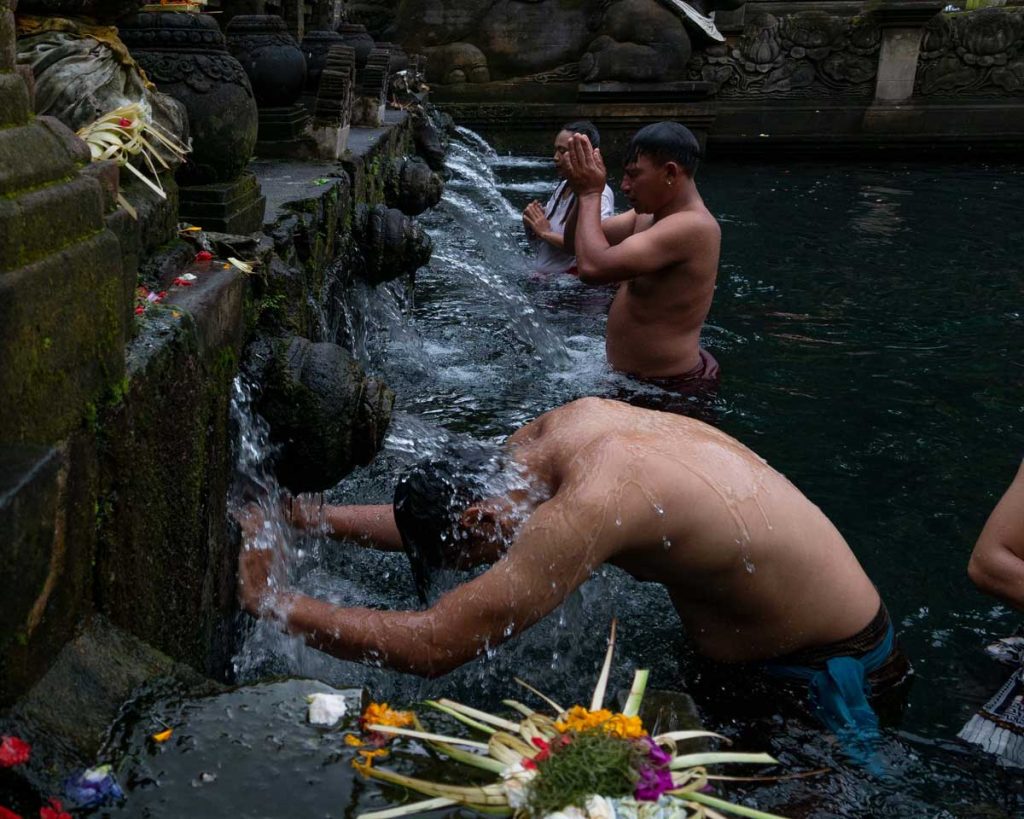
The new millennium birthed the global ‘new age’ industry. Bali has since morphed into a renowned spiritual and wellness destination and thrived. As a result, increasing numbers of foreigners seek alternative lifestyle practices to bring new vitality and meaning to their western conditioning. While the Balinese have their own yoga practice derived from Hinduism, the prevalent western styles are more exercise orientated than following the Eight Limbs Path, which mainly involves philosophy.
Once known as an artist’s village, Ubud has evolved into a tourist mecca. The Bali Spirit Festival (BSF) began in Ubud in 2008 as a premier international and holistic wellness and world music destination event. Its objective has been to create a global community gathering of cultures coming together in Bali for inspiration to make the world a better place. The Yoga Barn became Bali’s flagship business model. As a result, new wellness and spiritual modalities, practices and venues have since become increasingly accessible to tourist, national and expatriate clientele.
However, with its rise, creative marketing pitches and labels utilised within Bali’s spiritual and wellness industry have played with terms — and popular vernacular has evolved accordingly. For example, the word sacred began to be attached to many things. Sacred Scoops Ice-Cream, the sacred cacao ceremony and the sacred tea ceremony, one of Ubud’s latest happenings, are but a few. Likewise, yoga practitioners were labelled yogis and yoginis. A frozen yoghurt chain named after the term thus came to reality. The meaning of words slowly becoming diluted: a curious use of the ‘donation’ payment system for events came with recommended starting prices.
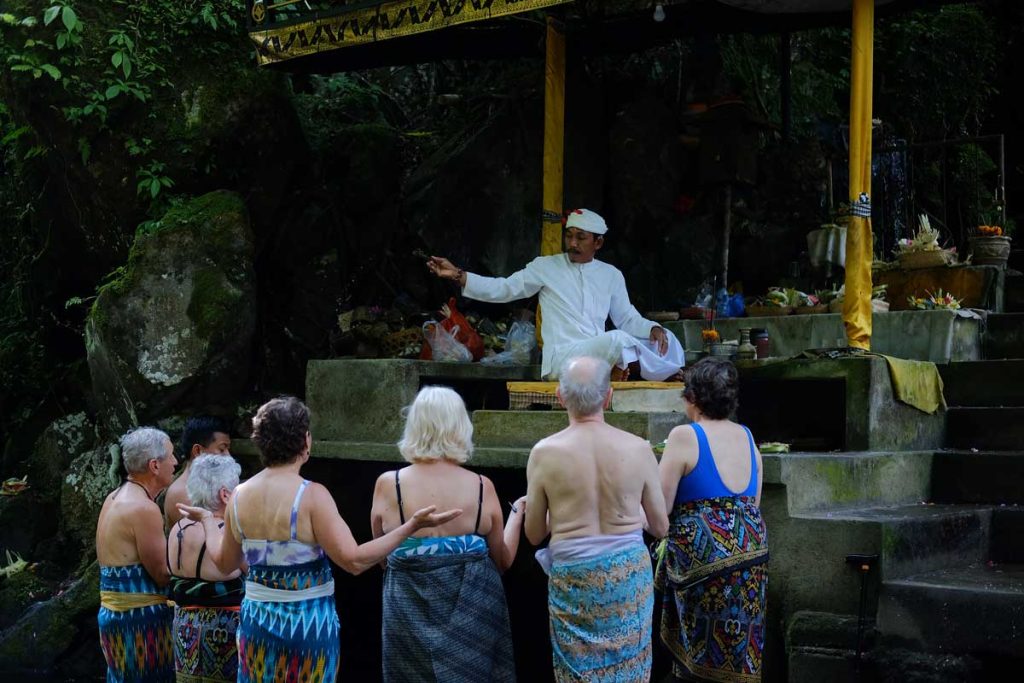
“Ubud attracts people from all around the world to heal past traumas or find some sort of peace within their lives, but spiritual bypassing practices are way more the norm among the westerners here,” said Human Behavioural and Addiction Counsellor Mark Beesley. “Spiritual bypassing is more about avoiding the real issues that need to be dealt with by turning everything into a positive including only feeling the positive emotions. I’m not saying that feeling positive is a bad thing, but when it’s sold or used as a tool to avoid the negative things that people deal with every day, it can be dangerous.”
“Westerners purloining the aura of Balinese mysticism and ’sacredness’ is an old sport. Wendy Sorensen, wife of Abel Sorensen, the architect of Hotel Indonesia in Jakarta, and close friend of President Sukarno, worked in the arts but also became a Bali-Esque healer-sage in LA in the 1960s. If one digs deeper, there are others as well,” expatriate American writer and Indonesian cultural expert Bruce W. Carpenter told me. The renowned author of art and cultural books in 1981 facilitated a series of tours with strict protocols under the auspices of the Institute of Noetic Sciences, an American research centre and direct-experience lab specialising in the intersection of science and profound human experience. “Others had probably preceded me. They were more secretive,” he said.
The barrier separating the sacred and profane is often obscured by human nature. Our ingenuity increasingly blurs the line between what is proper and of integrity and otherwise. Expatriates and locals lament Bali’s modern evolution and how the pursuit of money has transformed the Island of the Gods for the worse. There are, and always will be, many things one may complain of and be cynical about, especially as we respond or react to the extremes of globalisation. As participants, we all advocate our rapidly transforming modern system despite its failings. Globalisation erodes and homogenises cultures, destroys nature and thrusts us towards an increasingly dystopian trajectory. However, the downside of this phenomenon triggers our curiosity to ponder more meaningful questions about who we are and our collective responsibilities.

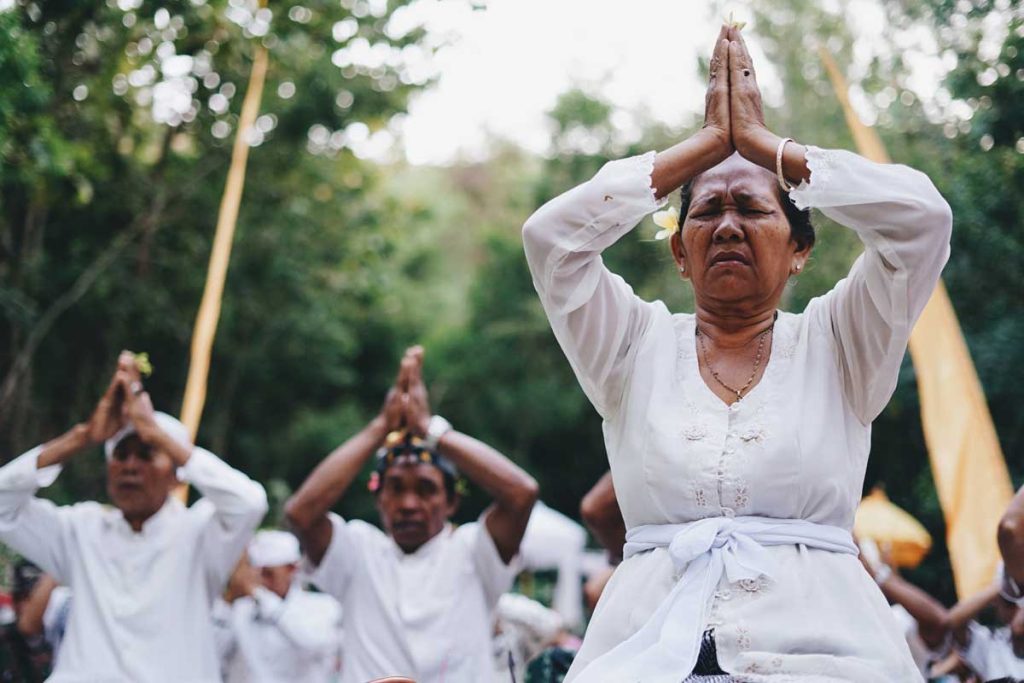
The weird, fantastic and absurd way of how foreigners behave and how modern Bali is evolving are wonderfully parodied in the Meme-Powered account on Instagram known as ‘Bali Metaverse Quest’. Digital content creators, to the NFT craze, Canggu traffic nightmares and playboys, fast buck entrepreneurs, influencers, life coaches, healers, light workers and more come under scrutiny. The comedic and thought-provoking posts highlighting human nature and a diversity of creative endeavours offer much for consideration and reflection. The questionable behaviour that occurs here is not exclusive to foreigners.
As humanity collectively stands on the precipice between the old world, which appears to be crumbling around us, and exciting new future possibilities, Bali increasingly plays a significant role in our decision-making process.
Bali has served the global community for a century as an epicentre of cross-cultural learning, creativity and human transformation. Bali, renowned for its nurturing mother spirit where the veil between the seen and unseen worlds is thin, offers us something unique. As a potent interface between worlds, the Island of the Gods enable us to reflect upon and question our modern behaviour. The Balinese Hindu-Buddhist philosophies can help teach us about the greater meaning of existence and that life is both sacred and precious; especially beyond the attractions of materialism and commercialism.
Rwa Bhineda is the principle that describes duality. It states that the universe is influenced by two equal and opposing forces, which encompass light and darkness, the righteous and evil, in constant interaction with each other, seeking equilibrium. The ancient understanding of the dynamism that dictates our behaviour is one of the Balinese philosophies’ many pearls of wisdom that offer value to the western mindset, especially during these often dark, chaotic and uncertain times.
The Balinese are incredibly gracious and tolerant hosts. Yet most foreigners never stop to contemplate this or be grateful for their blessings while in Bali. One of the most beautiful gifts is revealed within two simple yet profound words they often share, hati-hati (be careful).
